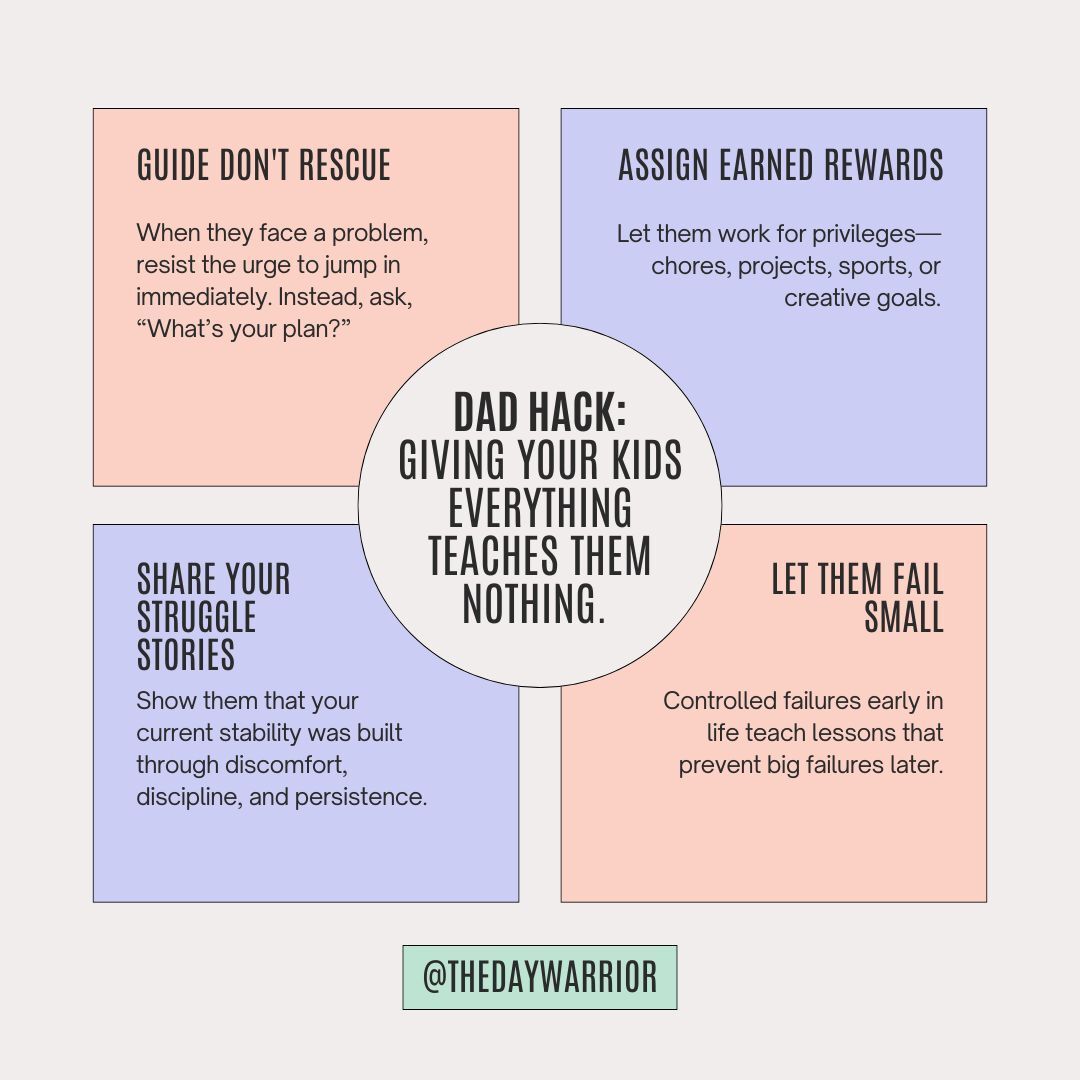
Good timber does not grow with ease: the stronger the wind, the stronger the trees.
There is a challenge to raising kids in the world today.
I will be honest, it is something I struggle with as a father.
I grew up with parents who gave me more than they had. While I didn’t get everything I wanted, they provided a comfortable life and set me up for success. They taught me the value of working hard and earning what I achieved.
But when I became a parent, life looked different. I was older. My wife and I already had some level of success—we owned a home, had two good-paying jobs, and could give our kids a life with fewer struggles than we faced.
That is where the challenge hides.
Comfort, while it feels good, can also become a trap. If we aren’t intentional, we end up spoiling our kids without meaning to.
It’s something I have to think about all the time proactively—am I preparing my kids for life, or protecting them from the very struggles that shaped me?
The greatest danger to our kids isn’t struggle—it’s never having to struggle at all.
The Parent Trap
Our first instinct as parents is to give our kids everything we never had—money, comfort, shortcuts, and quick solutions.
It feels like love.
Here is the hard truth: giving them everything often teaches them nothing.
Why?
Subscribe to Default to read the rest.
Become a paying subscriber of Default to get access to this post and other subscriber-only content.
Upgrade
